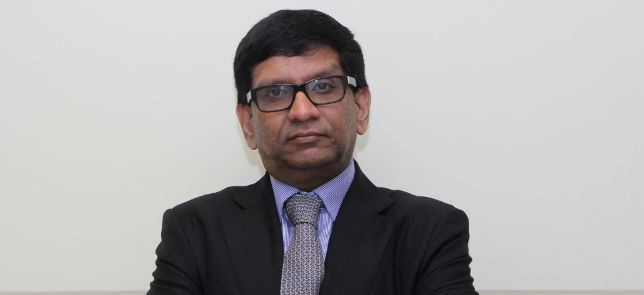India’s startup ecosystem, home to over 100 unicorn companies, continues to thrive despite challenges. Between 2014 and mid-2024, it attracted over $150 billion in investments, making it the third-largest in the world.
Key sectors such as e-commerce, fintech, and enterprise tech accounted for 52% of the total funding, according to Inc42.
Unicorn India Ventures (UIV), a tech-focused early-stage venture fund, has been instrumental in this growth since its inception in 2016.
From a ₹100 crore first fund in 2016, which invested in companies like Open Bank (valued at over $1 billion in 2022) with an impressive 60% annualized IRR, to a ₹1,000 crore third fund in 2023 aimed at global SaaS, deep tech, and IP-driven startups, UIV has closely witnessed India’s evolving startup landscape.
Focusing on tier-2 and tier-3 cities, UIV positions itself uniquely in India’s venture capital scene.
Additionally, the firm is exploring cross-border opportunities, particularly between Indian startups and US companies.
In an interview with Invezz, Bhaskar Majumdar, founder and managing partner of UIV, discussed the firm’s deep-tech investment strategy, emerging India-US startup synergies, UIV’s UK plans, and the challenges of investing in Indian media startups.
Edited excerpts:
Invezz: What motivates UIV to invest in deep-tech?
Deep-tech is seeing strong government support. The PLI (Production-Linked Incentive) scheme has been successful in the semiconductor industry, and a similar Design-Linked Incentive (DLI) scheme is now underway.
Globally, the “China Plus One” strategy has also benefited Indian companies.
From our perspective, we believe India’s future will be built on companies in manufacturing with strong global patents.
Within our portfolio, we’ve noticed such companies don’t necessarily need full revenue cycles or traditional growth metrics.
If their patents are robust, they often get acquired early in their lifecycle.
India is set to emerge as a global player in this space, and these are the investments we’re focused on.
‘Our aim is to invest in both Indian and US startups’
Invezz: What are UIV’s plans for becoming a cross-border fund?
It’s early days for our cross-border ambitions. A few years ago, we launched a sidecar fund to invest in UK tech businesses with scale-up opportunities in India.
However, the fund didn’t scale as expected due to COVID-19 and limitations within the UK tech ecosystem.
Today, we’re observing strong integration between Indian startups and US companies.
Many Indian startups are generating 70-80% of their revenue from the US within just a few years of operation.
Additionally, global tech giants like Amazon and Google are scaling Indian startups as go-to-market partners.
Similarly, some US-headquartered space-tech and R&D-focused companies are establishing development centers in India.
The India-US integration resembles the US-Israel collaboration, creating a unified ecosystem.
Our aim is to invest in both Indian and US startups, with or without an India connection.
However, our immediate focus remains on closing our third fund.
‘Unlike Europe’s aggressive anti-fossil fuel stance, the US could model coexistence’
Invezz: What do you expect from the new US administration under Trump as a VC?
Trump’s presidency could benefit emerging technologies like crypto and Web3, sectors that have faced start-stop growth cycles.
Many in the crypto space are optimistic about his policies.
Additionally, with figures like Elon Musk at the forefront, we anticipate a balanced approach toward renewable energy and fossil fuels.
Unlike Europe’s aggressive anti-fossil fuel stance, the US could model coexistence.
This approach may influence emerging markets like India, where forced EV transitions sometimes feel unnatural. Market dynamics should guide these shifts.
‘Globally, there’s significant interest in India’s private markets’
Invezz: Are family offices and UHNWIs more interested in startups today?
When we raised our first fund in 2016-17, the concept of startup investment was not well understood in India.
Investors were familiar with mutual funds and PMS products but not startups.
In the last 7-8 years, that has changed.
Family offices and ultra-high-net-worth individuals (UHNWIs) now allocate 10-15% of their portfolios to private markets, including early-stage startups.
These investors increasingly rely on professional fund managers to deploy their capital.
Globally, there’s significant interest in India’s private markets.
Liquidity from IPOs and exits has also fueled optimism, making the Indian startup ecosystem ripe for growth.
‘Of the eight UK investments we made, seven are performing well’
Invezz: Why did UIV’s UK fund not succeed as planned?
The UK has limited large-scale funds and low entrepreneurial activity.
While tax incentive schemes for startup investments were introduced, they seem counterintuitive.
Risk capital should be about growth potential, not tax savings.
Family offices and UHNWIs in the UK allocate limited resources to startups.
Consequently, we decided to focus on India.
Of the eight UK investments we made, seven are performing well, but this isn’t our core strategy.
‘Returns for VCs in media-tech have been limited’
Invezz: Why does UIV avoid investing in Indian media startups?
Despite my background in media, it’s a challenging space for VCs.
The content market is winner-takes-all—20 players may fail for one to succeed, like The Economic Times.
Media as an industry tends to be cash-neutral, and returns for VCs in media-tech have been limited.
Additionally, entrenched players like Meta and Google dominate, leaving little room for new entrants.
We’ve made selective investments, such as Inc42, a strategic startup within the ecosystem, but broadly, we stay away from media startups.
The post Interview: Indian startups and US firms forge deeper ties, mirroring US-Israel business integration, says UIV’s Bhaskar Majumdar appeared first on Invezz

